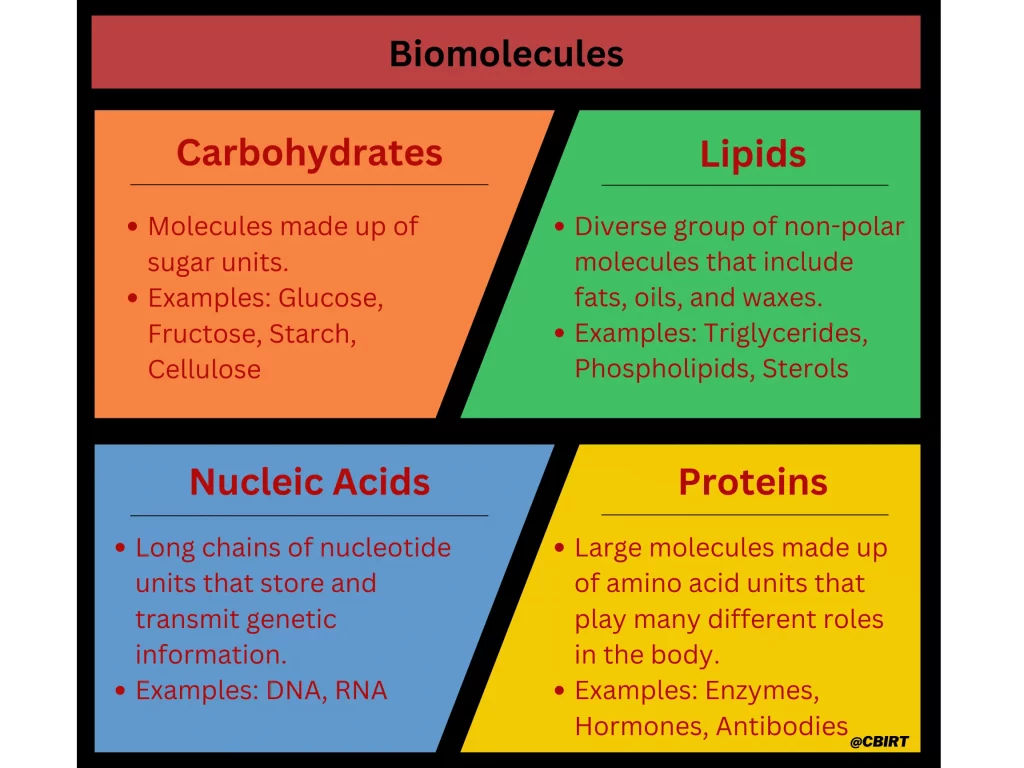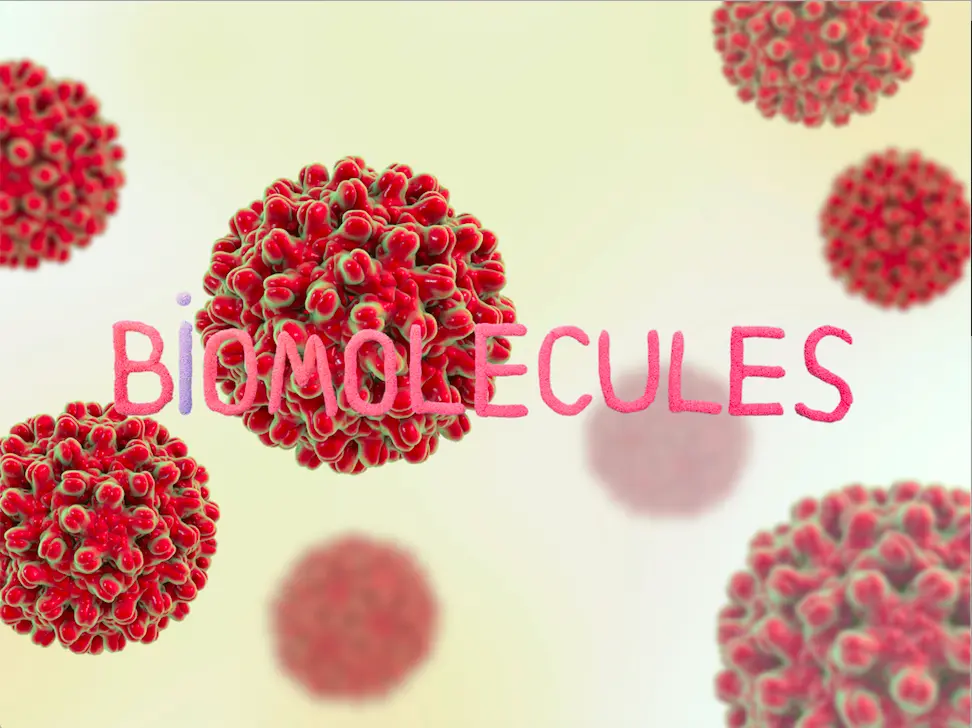Biomolecules are molecules produced by living organisms and are essential for the proper functioning of an organism’s cells and tissues. They include molecules such as carbohydrates, lipids, nucleic acids, and proteins.
What are the Types of Biomolecules?
There are four main types of biomolecules: carbohydrates, lipids, nucleic acids, and proteins.
- Carbohydrates are molecules made up of sugar units and include simple sugars like glucose and fructose, as well as complex carbohydrates like starch and cellulose.
- Lipids are a varied group of molecules, including fats, oils, and waxes. They are non-polar molecules and do not dissolve in water.
- Nucleic acids are long chains of nucleotide units that store and transmit genetic information and include DNA (deoxyribonucleic acid) and RNA (ribonucleic acid).
- Proteins are large molecules composed of amino acid units and play many different roles in the body, such as catalyzing chemical reactions, transporting molecules, and providing structural support. Proteins can be divided into several categories based on their function, including enzymes, hormones, and antibodies.

Image Credit: @TeamCBIRT
Present like a Pro! ExpertSlides – The secret weapon for your presentations!
Why are Biomolecules Important?
Biomolecules are essential for the proper functioning of an organism’s cells and tissues. They play many different roles in the body, including:
- Providing energy: Carbohydrates, lipids, and some amino acids can be used as sources of energy for the body.
- Structural support: Proteins and carbohydrates can provide structural support for cells and tissues. For example, proteins such as collagen and elastin provide strength and support to connective tissues, and carbohydrates such as cellulose form the cell walls of plants.
- Regulating biological processes: Many biomolecules act as enzymes, catalyzing chemical reactions that are essential for various biological processes. Hormones, which are proteins or small peptides, regulate many important functions in the body, such as growth, metabolism, and reproduction.
- Storing and transmitting genetic information: Nucleic acids such as DNA and RNA store and transmit genetic information, which is essential for the proper development and function of an organism.
- Protecting the body: Some biomolecules, such as antibodies and antimicrobial peptides, help protect the body from infection and disease.
Biomolecules vs. Macromolecules
Biomolecules and macromolecules are often used interchangeably to refer to large molecules that are important in living organisms. However, the term biomolecules is generally used to refer to any molecule produced by living organisms, while the term macromolecules specifically refers to large molecules that are composed of repeating subunits called monomers.
The different types of biomolecules are also macromolecules, as they are composed of smaller monomer units. For example, carbohydrates are made up of monosaccharides, lipids are composed of fatty acids and glycerol, nucleic acids are composed of nucleotides, and proteins are made up of amino acids. So, all macromolecules are biomolecules, but not all biomolecules are macromolecules.
Some small molecules produced by living organisms, such as hormones and enzymes, are biomolecules but are not classified as macromolecules because they are not composed of repeating monomer units.
Learn More:
Top Bioinformatics Books ↗
Learn more to get deeper insights into the field of bioinformatics.
Top Free Online Bioinformatics Courses ↗
Freely available courses to learn each and every aspect of bioinformatics.
Latest Bioinformatics Breakthroughs ↗
Stay updated with the latest discoveries in the field of bioinformatics.
Dr. Tamanna Anwar is a Scientist and Co-founder of the Centre of Bioinformatics Research and Technology (CBIRT). She is a passionate bioinformatics scientist and a visionary entrepreneur. Dr. Tamanna has worked as a Young Scientist at Jawaharlal Nehru University, New Delhi. She has also worked as a Postdoctoral Fellow at the University of Saskatchewan, Canada. She has several scientific research publications in high-impact research journals. Her latest endeavor is the development of a platform that acts as a one-stop solution for all bioinformatics related information as well as developing a bioinformatics news portal to report cutting-edge bioinformatics breakthroughs.






